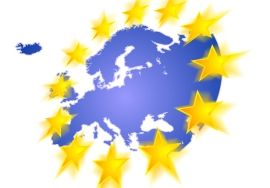European Citizens… Mind the Gap! Some Reflections on Participatory Democracy in the EU
 Since 1957, the European Economic Community (EEC) has undergone profound constitutional changes, dictated by the geographic and functional expansion of the EU, but also by the need to heal its original sin: the “democratic deficit”.
Since 1957, the European Economic Community (EEC) has undergone profound constitutional changes, dictated by the geographic and functional expansion of the EU, but also by the need to heal its original sin: the “democratic deficit”. Despite these innovations, the “democratic deficit” still exists as a deficiency with regard to “input legitimacy”, i.e. as a “discrepancy between the pervasive effects of the regulative power of the EU and the weak authorization of this power through the citizens of the Member States who are specifically affected by those regulations”.
Even though the democratic value of the involvement of people and civil society in decision-making remains contentious, more than a decade after the publication of the 2001 White Paper on European Governance, the method of increasing “input legitimacy” still means the improvement of citizens’ participation, in compliance with Art. 11 TEU.
This essay, building on the extensive academic scholarship on participatory democracy, discusses channels for citizen and civil society participation in the EU. It attempts to critically contrast and compare formal participatory tools, i.e. those provided for in the Treaties or regulated by secondary EU legislation, with soft or informal channels (e.g. consultation, work fora, platforms) for citizens’ involvement and their actual contribution in terms of “input legitimacy.” In particular, drawing inspiration from Smismans’ discourse on “decentralism”, this essay confronts the issue of multifold horizontal (non-territorial) participation, focusing on the involvement of CSOs, i.e. of transnational, non-territorial “organisational structures whose members have objectives and responsibilities that are of general interest and who also act as mediators between the public authorities and citizens”, as well as multi-level territorial (vertical) dimensions of participation. It then contrasts the role of (horizontally or vertically) organized civil society’s participation with the participatory role of EU citizens uti singuli.
